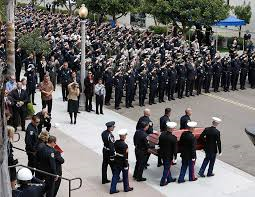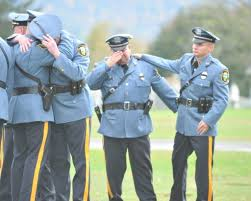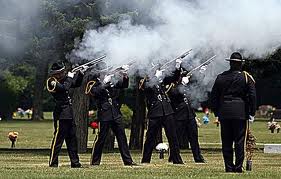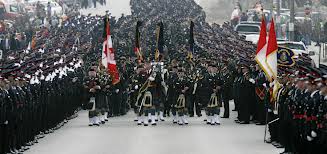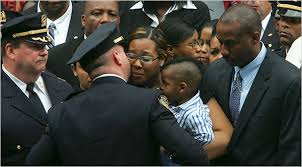Dec 19, 2015 by Wayne Zurl
Merry Christmas 2015. I thought it was time to post an old holiday story which is based on two true incidents which I’ve composited into one. Follow Police Officers Sam & Louie as they patrol the streets of North Belloprt, NY circa 1974.
It’s a Wonderful life? A Christmas Story
By Wayne Zurl
Few people want to work a four-to-twelve shift on Christmas night.
My wife had made an early dinner the night before and we opened our presents on Christmas Eve, satisfying our holiday spirit. And working Christmas day paid double time and a half. That’s no humbug.
My partner, Louie Rodriguez, had just split up with his wife and it wasn’t his turn to have the kids.
So, he and I sat drinking Dunkin Donuts’ coffee watching the stop light at Station Road and Montauk Highway. There were no cars, much less violators lurking about on December 25th.
It was warm that year, about fifty degrees. I took the pile liner out of my leather jacket before I left home. The heat generated by the big 383 Plymouth engine and sent through the thin firewalls made the interior of the police car too warm for a jacket. We tossed them into the back seat with our brief cases.
And we drank more coffee.
“We haven’t heard shit on the radio for almost twenty minutes,” I said.
“If we could find another human being I’d run them for warrants,” Lou suggested, “just to keep the dispatcher awake.”
“Goddamn,” I said, “the things I do for money.”
Ten minutes passed and we sat in silence. Even with the caffeine slithering through my veins, I felt drowsy, barely able to hold my eyes open. The light changed once again. I felt myself beginning to drift off. Invisible east and westbound cars stopped. Similar north and southbound traffic accelerated. I blinked a few times, shook off the drowsiness, and thought I was losing my mind.
The dispatcher’s voice broke the radio silence. “Five-oh-three, unit five-zero-three. 10-17, disorderly subject. Main Street, Bellport, just east of Station. Complainant wishes to remain anonymous.”
Louie picked up the microphone. “10-4, headquarters.” He sounded like he just woke up.
I put the car into gear. I drove that night. I always drove. I turned right out of the Long Island Railroad parking lot and headed south on Station Road. Moments later at the red light at Station and Main, we spotted our disorderly subject. Less than twenty yards east of the intersection, a man sat in the doorway of a real estate office on the south side of the Street. He held a pint-sized bottle at arm’s length and, at the top of his lungs, sang The Battle Hymn of the Big Red One.
“Louis,” I said. “I am not going to arrest that bastard for public intox on Christmas night.”
“What the hell are we going to do with him?”
“I don’t know. We’ll see. But I’m not wasting an hour and a half of paperwork to give this guy a place to sleep and a free breakfast.”
I didn’t wait for the light to change as I turned left and stopped at the curb, twenty feet from our crooner.
“Spurgie,” I said, walking toward the man. “What are you doing here? Shouldn’t you be somewhere celebrating Christmas?”
“That’s Sergeant Sneed to you, soldier.” He spoke seriously and then laughed and took a long pull from a bottle of Mogen-David 20/20.
“No shit, Spurgie,” Lou said, “you can’t sit here making all kinds of noise. The people are complaining.”
“Well, motha-fuck the people, private. I’m celebratin’. I’m havin’ a reunion.”
A sour smell emanated from the old man’s body. I turned my head away and took a breath before speaking.
“Spurgie,” I said, “we’ll take you wherever you want to go. But you can’t stay here.”
“Yes, I damn sure can. I’m havin’ a reunion with Brownie, Foster, Whatshisname, the B.A.R. man, and . . . I’ve got K Company with me tonight.”
I squatted down next to him. He offered me his bottle. I took the twist-off cap from his hand, capped the bottle, and stuck it into the pocket of his ragged overcoat. The wool felt like a dog too long without a bath.
“Nobody’s here except you and us, partner,” I said. “Your friends have all packed it in. They’re heading back to base camp. Let’s take a ride and find you some place to stay.”
“Goddamnit, soldier, I am K Company, 1st of the 18th. Sergeant Spurgeon Sneed, squad leader.”
“I know, Spurgie, I know. 1st of the 18th, the Big Red One. You were a good soldier—you still are, but we can’t stay here, we gotta get back and report to the C.O. Let’s go, Sarge.”
Reluctantly, he began to stand. Lou and I each took an arm—he needed help. We half walked, half dragged our man to the police car. I opened the back door.
“I swear to God, Spurgie,” Lou said, “if you puke in the back seat of my car I’ll fuckin’ kill you.”
Spurgeon laughed, sunk into the vinyl, and in ten seconds began snoring.
Lou and I looked at each other. He made a face and held his nose.
“Okay, genius,” my partner said, “what are we going to do with him if we don’t arrest him?”
“He’s got a wife. Maybe she doesn’t like him, but she’s still his wife.”
“Oh, she’ll be thrilled to see us on Christmas night.”
“Yeah, we’re just like Santa’s little elves,” I said. “Hang in there, buddy, everything’s under control.”
The normally busy street was deserted. Artificial wreaths with blinking white lights hung on every utility pole. I made a U-turn, a quick right, and took off going north. In less than a quarter mile we rolled down the windows, attempting to exorcise the smell of Spurgeon Sneed from the interior of the sector car.
“Why do you bother with him, Sam?” Lou asked.
“I feel sorry for him. He’s a genuine war hero.”
“What does that have to do with now? It’s 1974. World War Two was over almost thirty years ago. We’re veterans too, you know.”
“I do know. And that’s why you should understand,” I said. “The old guy got a silver star and a purple heart somewhere over in Europe. That K Company shit he talks about—he was the only survivor. I heard the story once, during one of his more lucid moments.”
“And you believe him?” Louis loved to act skeptical.
“I’ve seen his medals. He pawns them almost every month at Nate Levy’s hock shop,” I said.
“You should have been a social worker.”
“Up yours.”
In less than five minutes I turned onto the 600 block of Doane Avenue. We woke Spurgeon, helped him out of the car, and the three of us walked up to number 624. The old-timer seemed to have rejuvenated after his little nap. I knocked on the door.
A woman in her late-forties answered and immediately appeared less than excited to see us.
“What are you doin’ bringin’ him here?” she asked, shaking her head.
“He gives this as his address.” My answer sounded a bit lame.
“If he tol’ you he live on the moon, would you take him there?”
She had a point.
I heard Louie sigh. “Help us out here, Mrs. Sneed. Where is your husband living now?” he asked.
“My ex-husband, thank you,” she corrected him. “Last I heard he was stayin’ in that flop house down on Bay Avenue. But I don’t know for sure, I’m not his social secretary.”
A big man stepped up behind Margaret Sneed. It looked like he had decided to posture a little for his girlfriend.
“Whatchew officers doin’ bringin’ that derelict round here fo’? He and you ain’t welcome.”
I’d been about to speak when ex-Sergeant Sneed decided to stand up and protect his good name.
“Whatchew you doin’ in my house, Jesse Lester, you got-damn worthless nigger!”
“Shut up, Spurgie.” Lou began to hustle the old man down the brick steps.
Jesse started to open the screen door. I pushed it closed.
“Stay where you are, Mr. Lester. He’s leaving and you’re staying.”
He set his jaw and began flexing his shoulders. That kind of crap was wasted on me.
“No reason for you to come outside, Mr. Lester—understand?” I made it more of a command than a question.
“Officer,” Mrs. Sneed said softly, “please don’t ever bring him back here.”
I didn’t get a chance to speak before Jesse Lester stuck in his two cents.
“I catch him back here again, I’ll damn sure kill his ass.”
“Yeah, right.” I looked at Margaret Sneed. “Merry Christmas, folks.” I followed Lou and Spurgie back to the car.
“It’s nine-thirty,” Lou told me. “We missed our ring.”
“Big deal, we had an assignment.”
“You call this an assignment?”
Then we heard a voice from the back seat.
“Were y’all talkin’ ta me?”
Spurgeon, once again, seemed to be among the living. I’ve always been amazed how a drunk can regenerate and seem almost sober in a relatively short period of time.
“Give me a dollar,” I said to Louie.
“For what?”
“Just give me a damn dollar.”
He did, and I took one from my pocket.
With the two bills in my hand, I drove for a few minutes and stopped in front of Pete’s Luncheonette, a place close enough to the Bay Avenue flop house for Spurgie to walk home.
“Okay, Spurgie,” I said, “here’s two bucks. Go inside and get yourself a cup of coffee and a buttered roll. I don’t want to see you on the street again before the New Year.”
He took the two dollars, fumbled with the door handle, and exited the vehicle. Once outside, he stepped next to my window. I cranked it open again, wondering what he wanted.
“I thank ya gennelmens. Merry Christmas to y’all.” He flipped us a casual salute.
* * *
At twenty-to-twelve I parked next to the call box across from our relief point at the fire house, waiting for the midnight team to relieve us.
After dropping Spurgie off at Pete’s, we picked up several calls—two family fights, a first aid case where a young father skewered himself with a Phillips head screwdriver as he tried to assemble his son’s tricycle, and a false alarm active maternity handled by the pros from an ambulance crew.
Lou spoke on the phone with a deskman who typed a record of our calls into the blotter.
It hadn’t been an overly busy or difficult tour, but I had a headache and felt more than ready to go home. I pinched the bridge of my nose waiting for my partner to finish on the phone.
Not paying attention to much of anything, I suddenly noticed someone standing next to the car.
I cranked down the window and stared at Spurgie Sneed who looked really out of it. I assumed he had finished his pint of “Mad Dog” 20/20 and wandered up here rather than walking south on Bay Avenue to his furnished room.
He used his thumb to point at something behind him. He tried to talk, but I heard only gurgles.
“Goddamnit, Spurgie,” I said, “gimme a break. I’m ready to go home. I’m not arresting you on Christmas. Go lay down next to the fire house and the midnight guys will drive you home.”
He kept pointing behind him.
Lou finally finished with the deskman and looked to his left.
Spurgie managed to croak out, “Jesse fuckin’ Lester,” and he fell face-first onto the blacktop. An ancient garden sickle was lodged between his shoulder blades, his tattered gray herringbone overcoat soaked with blood.
Lou and I jumped out of the car. I lay two fingers over Spurgie’s neck checking for a carotid pulse. I looked at Lou and shook my head.
Former Buck Sergeant Spurgeon O. Sneed, United States Army, sole survivor of K Company, 1st Battalion, 18th Regiment, 1st Infantry Division lay dead on Dunton Avenue.
Two hours later we sat in the 5th Squad Detective’s building with Detective Angelo Ruffino processing the arrest of Jesse Lester for murder in the second degree.
Lou called Central Records to get case and arrest numbers and a record of Jesse’s priors. He tossed two sheets of paper on Angelo’s desk and walked toward the men’s room. I had just finished typing the supplementary report explaining our probable cause to believe Jesse killed Spurgeon.
“Sam,” Angelo said, “you the arresting officer on this?”
“Yeah, it’s my turn.”
He smashed the keys of an ancient Olivetti typewriter enough times to fill in my name.
“What’s your tin number?” he asked.
“Twenty-four sixty-two.”
The characters smacked the rubber roller four more times.
“Squad?”
“Fourteen.”
Smack, smack.
The radio in the Squad was set on WRIV for their forty-eight hours of Christmas music. Bing Crosby sang God Rest Ye Merry Gentlemen.
Angelo pulled the court information from the typewriter. He paper-clipped that and the other arrest reports together and held them in my direction.
“Here you go, pal. Go see the desk sergeant, sign your name, and swear all that’s true. I’ll take Jesse over for pictures and prints.”
“Thanks, Ange, see ya around the campus.”
Louie stepped out of the men’s room and walked over.
“Let’s go next door,” I said. “I’ll sign this and we’ll have the lieutenant credit us with some overtime.”
He nodded.
The next morning Jesse Lester drove to District Court with two cops in a prisoner van, not by Santa Claus in a sleigh pulled by eight flying reindeer. They, like me, were home asleep.
The End
read more






